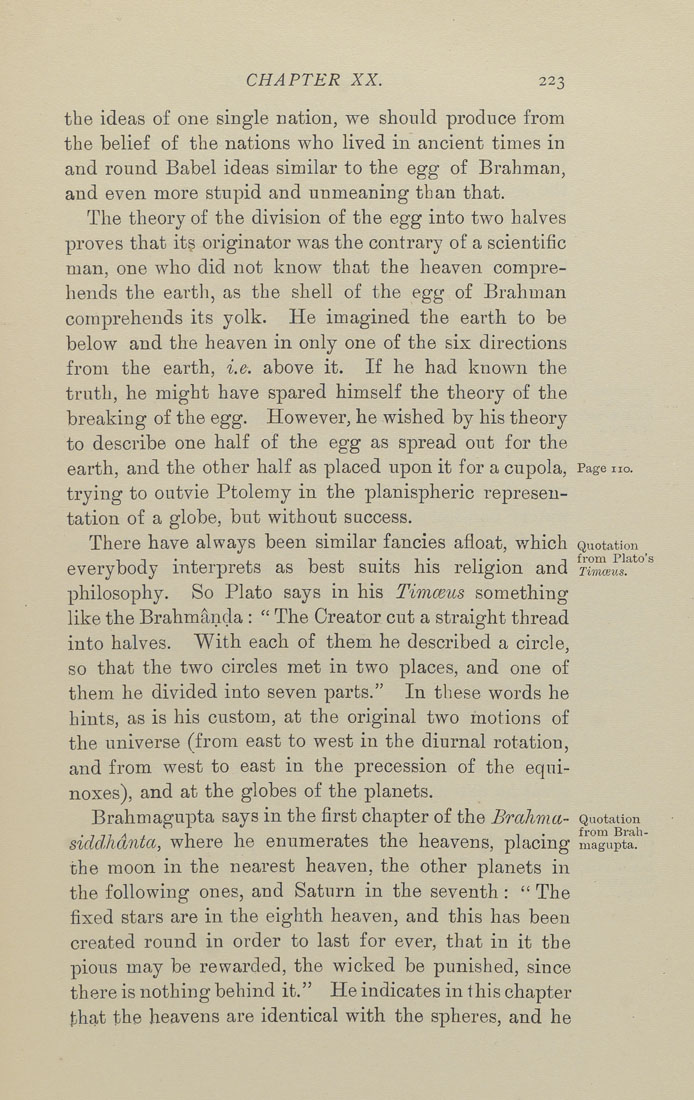Bīrūnī, Muḥammad ibn Aḥmad, Alberuni's India (v. 1)
(London : Kegan Paul, Trench, Trübner & Co., 1910.)
|
||
|
|
|
|
| Page 223 |

CHAPTER XX. 223 the ideas of one single nation, we should produce from the belief of the nations who lived in ancient times in and round Babel ideas similar to the egg of Brahman, and even more stupid and unmeaning than that. The theory of the division of the egg into two halves proves that its originator was the contrary of a scientific man, one who did not know that the heaven compre¬ hends the earth, as the shell of the egg of Brahman comprehends its yolk. He imagined the earth to be below and the heaven in only one of the six directions from the earth, i.e. above it. If he had known the truth, he might have spared himself the theory of the breaking of the egg. However, he wished by his theory to describe one half of the egg as spread out for the earth, and the other half as placed upon it for a cupola. Page no, trying to outvie Ptolemy in the planispheric represen¬ tation of a globe, but without success. There have always been similar fancies afloat, v/hich Quotat: everybody interprets as best suits his religion and philosophy. So Plato says in his Timmus something like the Brahmanda : " The Creator cut a straight thread into halves. With each of them he described a circle, so that the two circles met in two places, and one of them he divided into seven parts." In these words he hints, as is his custom, at the original two motions of the universe (from east to west in the diurnal rotation, and from west to east in the precession of the equi¬ noxes), and at the globes of the planets. Brahmagux^ta says in the first chapter of the Brahma- Quotation siddhdnta, where he enumerates the heavens, placing ma"upta.'" the moon in the nearest heaven, the other planets in the following ones, and Saturn in the seventh : " The fixed stars are in the eighth heaven, and this has been created round in order to last for ever, that in it the pious may be rewarded, the wicked be punished, since there is nothing behind it." He indicates in this chapter that the heavens are identical with the spheres, and he ion from Plato's |
| Page 223 |







